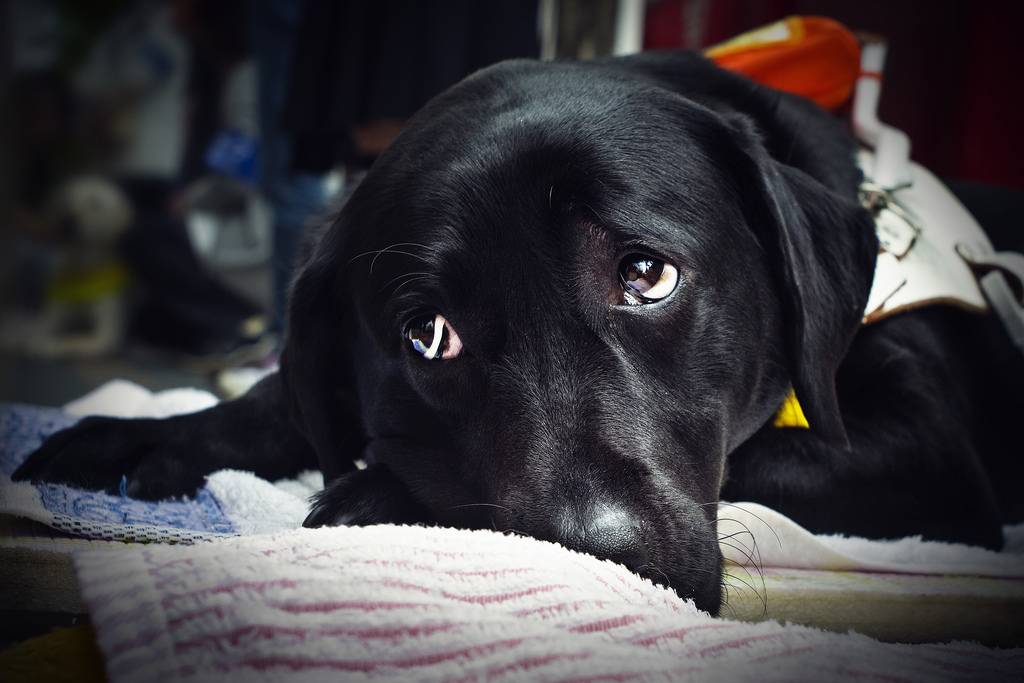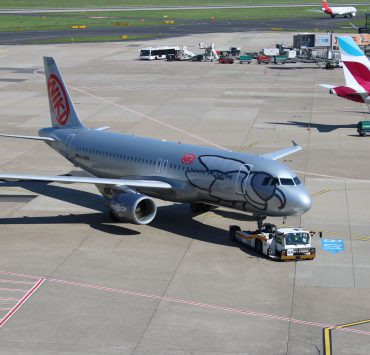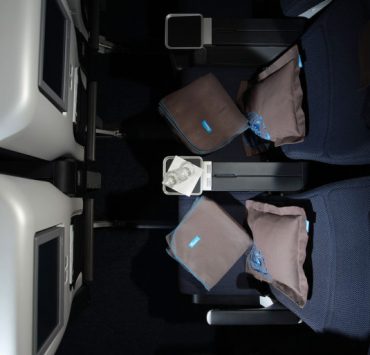
When Delta Air Lines recently made it harder for passengers to take service animals like guide dogs and so-called ’emotional support’ animals onboard its flights, it said it was doing so to protect its customers and employees.
The move has been largely welcomed by those who say the current regulations have been abused but guide dog users have reacted with alarm at Delta’s surprise move. The U.S. National Association of Guide Dog Users says it is “deeply concerned” by the change and says the new requirements are overly onerous.
According to the airline, some 700 service or support animals are carried in its passenger cabins every day – that’s nearly 250,000 every year. While that’s still a tiny number in comparison to the 180 million passengers the airline carried last year, Delta says its seen a huge 85% increase in “animal incidents” since 2016.
Passengers have had to contend with service and support animals urinating and defecating in the cabin, there’s been barking and other aggressive behaviour and even on some rare occasions, animals have bitten innocent victims.
A big part of the problem, Delta asserts is the desire of some passengers to bring exotic or unusual animals onboard. Apparently the airline has seen customers try to bring turkeys, gliding possums, snakes and spiders onboard their flights – claiming they were “emotional support animals.”
“A public outcry to stop the abuse”
The Association of Flight Attendants claims there has been a “public outcry to stop the abuse” and says it “supports this move by Delta for increased requirements for emotional support animals.”
But there’s a big flaw in Delta’s plan – it doesn’t differentiate between support animals, which include guide dogs and “emotional support animals”. Instead, a blanket restriction will require all passengers who wish to travel with an animal in the cabin to provide proof of health or vaccinations at least 48 hours in advance of travel.
On top of that, Delta now wants passengers with an emotional support animal to prove their animal can behave in the passenger cabin – making it safer for both passengers and even trained service animals who have been attacked in the past.
A change in the regulations?
Delta and the Association of Flight Attendants are calling on the current regulations to be urgently reviewed.
“The rise in serious incidents involving animals in flight leads us to believe that the lack of regulation in both health and training screening for these animals is creating unsafe conditions across U.S. air travel,” commented John Laughter, Delta’s Senior Vice President for safety and security.
Meanwhile over on our @instagram page, we’ve got #catsonplanes video! ✈️???♀️ https://t.co/tShxiuDvtv ? #catsofinstagram #passengershaming #crewlife pic.twitter.com/4JsX85Sq9F
— Passenger Shaming (@PassengerShame) December 27, 2017
AFA echoed Laughter’s sentiments, saying: “We hope other airlines will consider similar policies and that the Department of Transportation will take this opportunity to provide guidelines for curtailing abuse while protecting the needs of those with disabilities and veterans.”
What is the Air Carrier Access Act
The current regulations come in the form of the Air Carrier Access Act – a well intentioned law that was meant to guarantee the rights of disabled people to travel freely without fearing discrimination from either U.S. and foreign airlines.
But abuse is said to be rife – observers claim it’s easy to get a doctor or licensed mental health professional to designate any household pet as an emotional support animal. Airlines have been effectively forced to allow untrained and potentially dangerous animals onboard their planes.
The National Association of Guide Dog Users, however, is concerned Delta’s move is effectively discriminating against blind passengers.
“Travelers without guide dogs are not required to plan their travel 48-hours in advance,” they say. The group thinks the new requirements are both illegal and unnecessary.
As it stands, the association has asked to meet with Delta representatives to discuss their concerns in more detail. Their ultimate aim, they say is to prevent “undue, unsupported, and unlawful hardships on guide dog users.”
Mateusz Maszczynski honed his skills as an international flight attendant at the most prominent airline in the Middle East and has been flying throughout the COVID-19 pandemic for a well-known European airline. Matt is passionate about the aviation industry and has become an expert in passenger experience and human-centric stories. Always keeping an ear close to the ground, Matt's industry insights, analysis and news coverage is frequently relied upon by some of the biggest names in journalism.










There is no public outcry.
There is no public outcry.